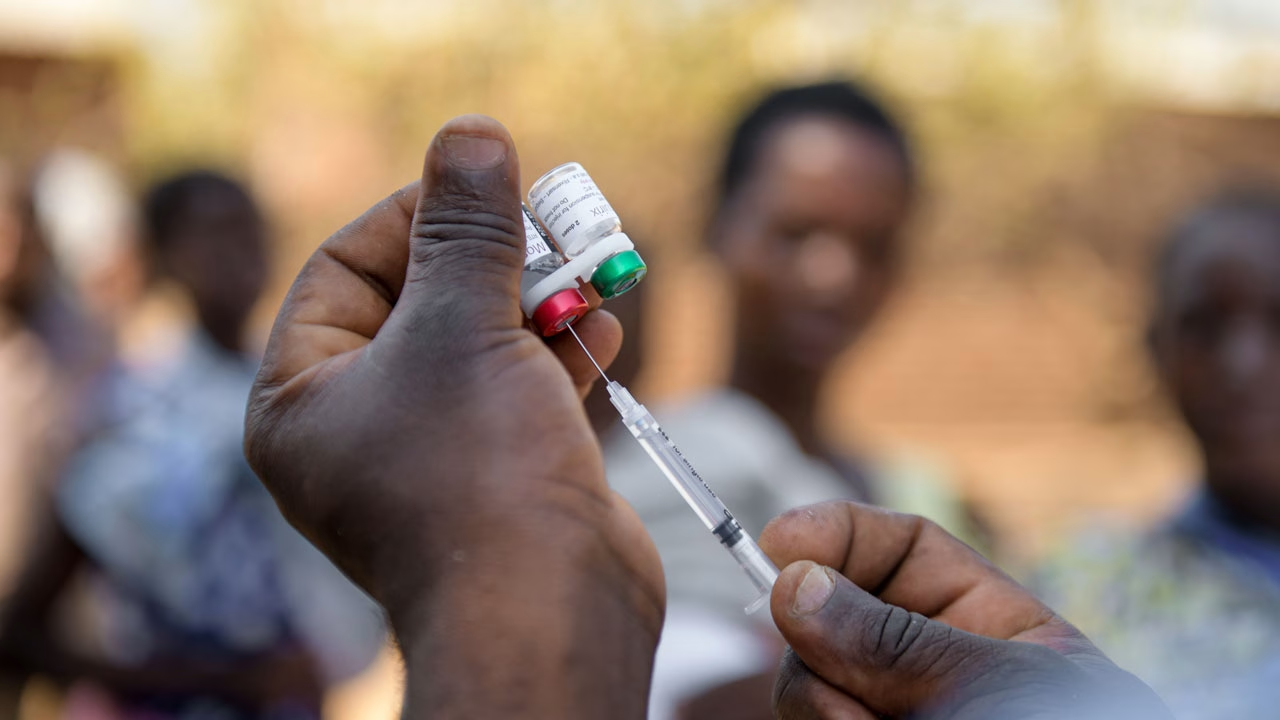Nigeria, the country with the highest malaria-related death toll in the world, has begun the rollout of a vaccine aimed at combating the disease for the first time. The West African nation, which accounts for nearly a third of the world’s malaria deaths each year, is introducing the R21/Matrix-M vaccine, which is the second malaria vaccine approved by the World Health Organization (WHO).
The vaccine is being administered to children between the ages of five and 15 months, a group particularly vulnerable to the disease. According to researchers, the vaccine is 75% effective, though health experts stress that it should be used alongside other preventive measures such as mosquito nets and insecticides to ensure maximum protection.
The vaccine rollout began in two of Nigeria’s most malaria-affected states, Bayelsa and Kebbi, with plans to expand it to the entire country by next year.
At a vaccination ceremony in Bayelsa, Happiness Idia-Wilson, whose 11-month-old son was the first to receive the vaccine, expressed her support for the initiative. “I am doing it for the safety of the child, for him to be protected,” she said. “I will tell mothers, and I will invite people [to be vaccinated].”
Bayelsa’s Commissioner for Health, Prof Seiyefa Brisibe, confirmed that the state would conduct health campaigns to encourage vaccination, using local languages to reach as many people as possible.
In 2022, Nigeria accounted for 27% of global malaria cases and 31% of malaria-related deaths, according to the WHO. The disease remains a major threat, particularly for children under five and pregnant women. Across Africa, which saw 95% of malaria deaths globally, nearly 580,000 people lost their lives to the disease that year.
“We are confident that this vaccine, in combination with other preventive measures, will drastically reduce the burden of malaria in Nigeria and help us move closer to achieving the goal of a malaria-free Africa,” said Dr. Walter Mulombo, WHO Representative in Nigeria.
The Nigerian government estimates that the country loses around $1.1 billion annually due to malaria-related health expenditures and lost productivity.
Developed by the Jenner Institute at Oxford University, the R21/Matrix-M vaccine requires three doses administered four weeks apart, followed by a booster dose one year later. Earlier this year, the vaccine was also introduced in Ivory Coast and the Democratic Republic of Congo.
While Nigeria was not part of the initial rollout of the RTS,S malaria vaccine by the WHO to 12 African countries, Ghana, Kenya, and Malawi have already trialed this earlier vaccine.
With the introduction of the R21/Matrix-M vaccine, Nigeria hopes to make significant strides in reducing the devastating impact of malaria on its population.


